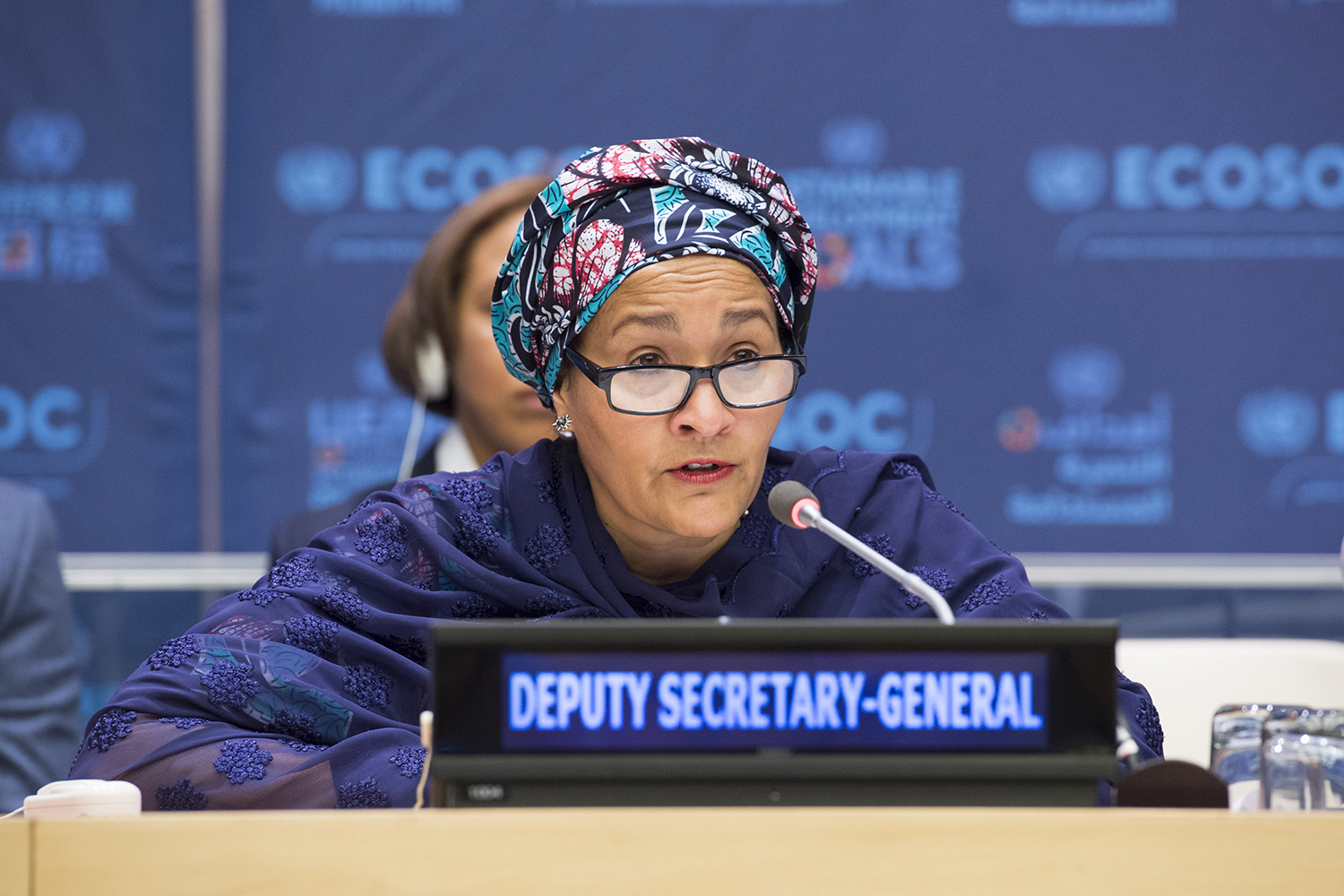UN Deputy Secretary- General Amina Mohammed on Wednesday highlighted the link between climate change and international peace and security and called for collective action.
“The impacts of climate change go well beyond the strictly environmental. Climate change is inextricably linked to some of the most pressing security challenges of our time,” Xinhua quoted Mohammad as telling the Security Council in a high-level debate on climate-related security risks.
“It is no coincidence that the countries most vulnerable to climate change are often those most vulnerable to conflict and fragility.”
Fragile countries are in danger of becoming stuck in a cycle of conflict and climate disaster, she said. “Where resilience is eroded, communities may be displaced and exposed to exploitation.”
Mohammed, who has just returned from a joint UN-African Union mission to South Sudan, Niger and Chad, took the Lake Chad region as an example.
The drastic shrinking of Lake Chad by more than 90 per cent since the 1960s has led to environmental degradation, socio-economic marginalization and insecurity affecting 45 million people, she said.
“Exacerbated competition over scant resources and the vicious cycle of risk and vulnerability have decreased the resilience of populations to cope with humanitarian crises.”
Declining economic activity and agricultural loss have led to a lack of employment opportunities across the region. The resulting socio-economic marginalization has exposed populations, in particular the young, to the risk of violent extremism and provided breeding ground for recruitment by terrorist groups such as Boko Haram, said Mohammed.
The Boko Haram insurgency in northeast Nigeria and neighbouring countries of Cameroon, Chad and Niger has left over 10 million people displaced and resulted in massive destruction of basic infrastructure, health and educational facilities, commercial properties, private homes and agricultural assets, noted Mohammed, a Nigerian.
The multidimensional nature of this crisis underlines the complex relationship between climate change and conflict. Climate security risk assessments and reporting from local, national and regional levels should be considered as an early warning for conflict prevention, she said.
“We must understand climate change as one issue in a web of factors that can lead to conflict, can exacerbate conflict. Within this web, climate change acts as a threat multiplier, applying additional stress on prevailing political, social and economic pressure points.”
She warned that climate change is a real global threat and is proceeding at a relentless pace.
Earlier this year, the World Meteorological Organization confirmed that 2015, 2016 and 2017 were the warmest years on record, she said.
“The level of carbon dioxide concentration in the atmosphere continues to rise. This build-up means that we are at increasing risk from heat waves, floods, droughts and wildfires — and we are now seeing all of these things happening more frequently.”
While the impact of climate change may be spread unevenly across different regions today, no country will be spared from its consequences in the long term, she said, calling for collective action.
“We must act together, with a joint vision and a commitment to multilateral cooperation. This is our only chance at finding effective and sustainable solutions to this huge challenge.”
Action on climate change is urgent and an integral part of building a culture of prevention and ensuring peace, she said.


